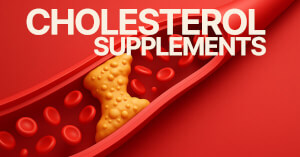
Artichoke
Artichoke is used to support liver health, improve digestion, and lower cholesterol levels.
Artichoke (Cynara scolymus) is a thistle-like plant whose leaves are used traditionally to support liver health and digestion. It has been used in European herbal medicine for centuries.
Artichoke leaf extract contains cynarin and other antioxidants that may help stimulate bile flow, lower cholesterol, and support detoxification. It is often taken in capsule or tablet form.
Artichoke is used for liver support, indigestion, and cholesterol balance. Several clinical studies support its benefits for digestion and lipid metabolism, though more research is ongoing.
Other names & forms of Artichoke supplement : cynara scolymus, artichoke leaf, globe artichoke, artichoke extract
Possible Benefits
From bile flow to lipid metabolism, Artichoke offers digestive and liver support benefits:
- Supports Liver Support by enhancing bile flow and aiding in the breakdown of fats.
- Helps maintain Digestive Health by relieving occasional indigestion and promoting nutrient absorption.
- May contribute to Cholesterol Support by helping lower LDL cholesterol and improving lipid profiles.
Side Effects
Artichoke leaf extract can aid digestion by promoting bile production, but some users notice mild effects as their liver responds. Keep an eye out for:
- Mild gastrointestinal discomfort, bloating, gas, or loose stools, especially initially
- Possible headache or dizziness in sensitive individuals
- Occasional allergic skin reactions, rash or itching, in those sensitive to Asteraceae family plants
- Temporary mild fluctuations in blood pressure, monitor if you have hypotension
- Rare liver enzyme elevations when taken in very high doses over extended periods
Interactions
Possible interactions include:
- Cholesterol-lowering drugs: Artichoke’s cynarin may enhance the effects of statins or supplements like Omega-3 Fish Oil, necessitating lipid panel monitoring to avoid overly low cholesterol.
- Antidiabetic medications: By improving bile flow and digestion, artichoke can affect glucose metabolism; when used with insulin or Cinnamon, monitor blood sugar to prevent hypoglycemia.
- Diuretics: Its mild diuretic action may potentiate drugs like furosemide or supplements such as Dandelion Root, affecting fluid and electrolyte balance, monitor electrolytes.
- Anticoagulant and antiplatelet agents: Artichoke may inhibit platelet aggregation, compounding warfarin or supplements like Garlic, increasing bleeding risk.
Precautions
Before adding Artichoke extract, confirm that you’re not in any of these cautionary groups. If you are, check with your healthcare provider:
- Individuals with gallstones or bile duct obstruction: May exacerbate symptoms; avoid
- People with liver disease: Potential for elevated liver enzymes; monitor liver function if used long term
- Those on cholesterol-lowering medications: Artichoke may enhance drug effects; use with medical supervision
- Pregnant or breastfeeding women: Limited safety data; best to avoid high-dose supplements
- Patients scheduled for surgery: Discontinue at least two weeks prior, possible interactions with anesthesia and bile flow
Studies
These studies provide scientific insights into Artichoke benefits:
A 2010 randomized, double-blind trial in 69 hyperlipidemic patients showed 1,280 mg/day artichoke leaf extract for 12 weeks reduced LDL-C by 18% versus 5% with placebo.
A 2009 crossover study in 23 hypercholesterolemic adults found artichoke extract decreased total cholesterol by 9% after 4 weeks but had no effect on HDL-C.
A 2016 meta-analysis of six RCTs reported artichoke extract reduces triglycerides by 11% and improves endothelial function.
No RCTs have assessed artichoke leaf extract for digestive disorders or liver enzyme modulation in humans.
Disclaimer: This page is for educational purposes and does not replace medical advice. If you're pregnant, have a condition, or take medication, speak with a qualified professional.








